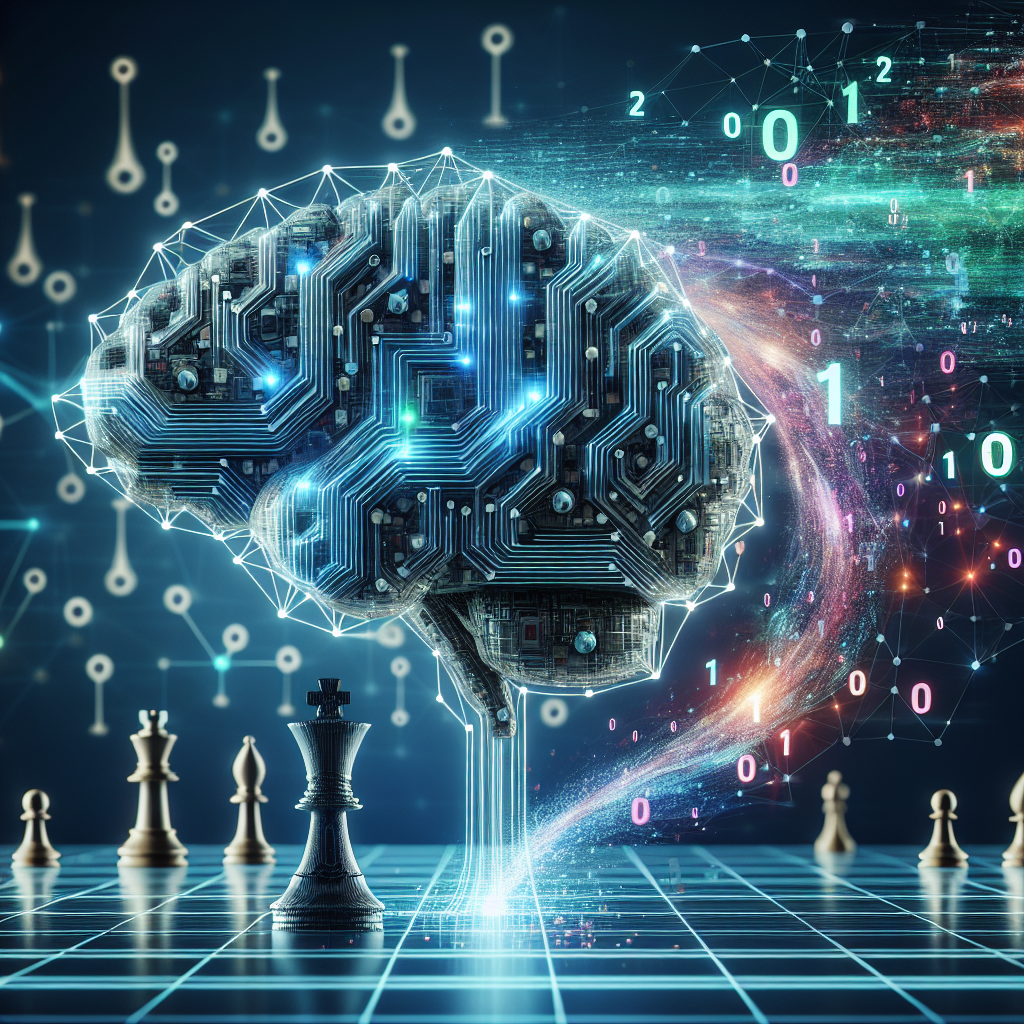The Rise of AGI: How Artificial General Intelligence is Changing the Game
Artificial Intelligence (AI) has been a hot topic in recent years, with advancements in machine learning and deep learning pushing the boundaries of what computers can do. From self-driving cars to virtual assistants, AI has already made a significant impact on our daily lives. However, one of the most exciting developments in the field of AI is the rise of Artificial General Intelligence (AGI).
AGI is the next step in the evolution of AI, where machines are capable of performing any intellectual task that a human can do. This means that AGI systems will have the ability to reason, learn, and problem-solve in a way that is indistinguishable from human intelligence. While we are not quite there yet, researchers and developers are working tirelessly to bring AGI to fruition.
In this article, we will explore the current state of AGI research, the potential impact of AGI on society, and the challenges that come with developing such a powerful technology.
What is Artificial General Intelligence?
Artificial General Intelligence (AGI) refers to machines that possess the ability to understand and learn any intellectual task that a human can do. This includes tasks such as reasoning, problem-solving, and learning from experience. AGI systems are not limited to a specific domain or task, unlike most AI systems that are designed for a specific purpose.
AGI is often seen as the holy grail of AI research, as it has the potential to revolutionize many industries and change the way we live and work. Imagine a world where machines can think like humans, make decisions on their own, and even create new ideas and concepts. This is the promise of AGI.
Current State of AGI Research
While AGI is still a long way off, researchers have made significant progress in recent years. Deep learning, a subfield of AI that uses neural networks to mimic the human brain, has been a major driver of advancements in AGI research. Deep learning has been used to develop systems that can recognize images, understand natural language, and even play games better than humans.
One of the most famous examples of AGI research is OpenAI’s GPT-3, a language model that can generate human-like text based on a given prompt. GPT-3 has been hailed as a major breakthrough in natural language processing and has the potential to revolutionize how we interact with computers.
Another notable development in AGI research is the field of reinforcement learning, where machines learn through trial and error. This approach has been used to develop AI systems that can play complex games like Go and StarCraft at a level that rivals or surpasses human players.
Challenges of Developing AGI
While the potential of AGI is vast, there are many challenges that researchers must overcome before we can achieve true artificial general intelligence. One of the biggest challenges is building systems that can understand context and reason in a way that is similar to human intelligence. Current AI systems are often limited by their lack of common sense and ability to understand nuances in language and behavior.
Another challenge is ensuring that AGI systems are safe and aligned with human values. As machines become more intelligent, there is a risk that they could act in ways that are harmful to humans. It is essential that researchers develop AI systems that are ethical, transparent, and aligned with human goals and values.
The Impact of AGI on Society
The rise of AGI has the potential to revolutionize many industries and change the way we live and work. From healthcare to finance to transportation, AGI systems could automate tasks, improve efficiency, and create new opportunities for innovation. Imagine a world where doctors have access to AI systems that can diagnose diseases faster and more accurately, or where autonomous vehicles can navigate city streets without human intervention.
However, the impact of AGI on society is not without its challenges. Automation could lead to job displacement and income inequality, as machines take over tasks that were once performed by humans. There are also concerns about privacy and security, as AGI systems have the potential to collect and analyze vast amounts of data about individuals without their consent.
FAQs
Q: When will AGI be achieved?
A: It is difficult to predict when AGI will be achieved, as it is a complex and multifaceted problem. Some researchers believe that we could see AGI within the next few decades, while others believe it could take much longer. The timeline for achieving AGI will depend on advancements in technology, research funding, and ethical considerations.
Q: Will AGI be dangerous?
A: There is a risk that AGI could be dangerous if not developed and controlled properly. It is essential that researchers and policymakers work together to ensure that AGI systems are safe, ethical, and aligned with human values. This includes developing robust safeguards, transparency measures, and ethical guidelines for the development and deployment of AGI.
Q: How will AGI impact jobs?
A: The impact of AGI on jobs is a topic of much debate. While automation could lead to job displacement in some industries, it could also create new opportunities for innovation and growth. It is essential that we prepare for the future of work by investing in education and training programs that equip workers with the skills they need to succeed in a world powered by AGI.
In conclusion, the rise of Artificial General Intelligence is a game-changer that has the potential to revolutionize many industries and change the way we live and work. While there are many challenges to overcome, the promise of AGI is too great to ignore. It is essential that we work together to ensure that AGI is developed and deployed in a safe, ethical, and responsible manner. Only then can we unleash the full potential of this transformative technology.

